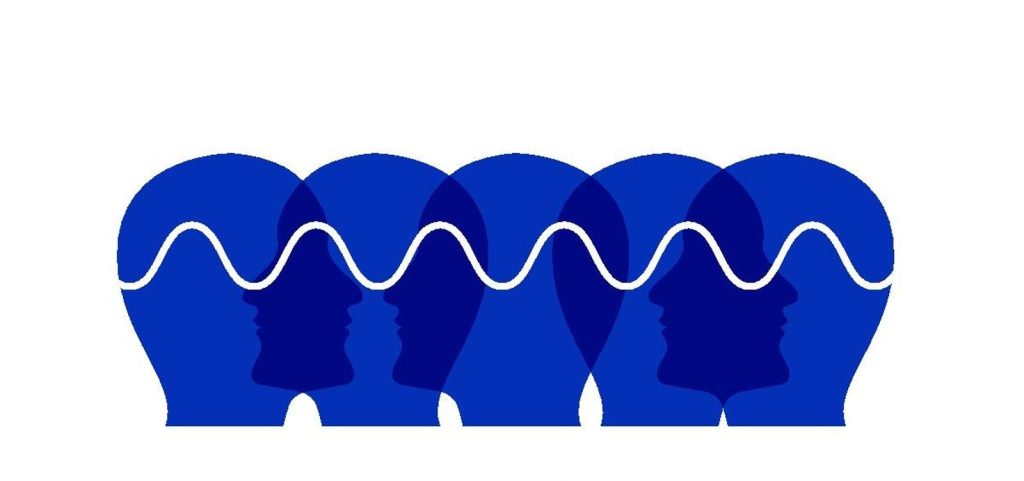Empathy, the ability to understand and share the feelings of others, is a beautiful but complex aspect of human nature. For those who identify as empaths, the experience goes beyond mere understanding; they feel others’ emotions as if they were their own.
Neuropsychologically, the human brain is designed to understand and mirror the emotions and behaviors of others, but the heightened empathy of a “true empath” comes with its unique set of challenges. Experiencing one’s own and others’ emotions in a profoundly deep way can feel like a curse at times. However, this curse can be a gift in disguise, if you know how to use it to your benefit.
Empathy And The Struggles That Come With It
A study published in the Canadian Journal of Behavior Science outlined that empathy is far more complex than what we’ve understood, and that it manifests in various forms. Feeling, knowing and caring about what someone else feels are now understood as different forms of empathy—affective, cognitive and sympathetic empathy, respectively.
Interestingly, each of these forms are associated with different kinds of prosocial and antisocial behavior. Namely, sympathetic empathy—caring about others’ emotions—was linked to both antisocial and prosocial behaviors. Empaths who can’t help but sponge up the emotions of other people inevitably face more challenges than others:
- Empaths may find themselves easily overwhelmed in crowded or emotionally charged spaces, absorbing the emotions of those around them and experiencing feelings of exhaustion or anxiety.
- The strong desire to help others can lead empaths to struggle with setting boundaries. Learning to say no and prioritize personal needs becomes a crucial aspect of their emotional well-being.
- Constantly navigating and processing the emotions of others can be emotionally draining, making empaths more prone to burnout. Taking adequate measures to recharge becomes essential.
- Distinguishing between emotions that are their own and those absorbed from others can be challenging for empaths, leading to confusion and hindering the processing of their own feelings.
- Empaths may be particularly sensitive to negativity, impacting their mood and well-being. Seeking positive environments becomes vital for maintaining emotional balance.
- Their empathic nature may lead to an overwhelming sense of responsibility for others, potentially resulting in neglect of their own needs.
- Empaths may face challenges in relationships due to their intense sensitivity, requiring a partner who understands and respects their emotional nature.
- Some empaths may feel a sense of loneliness or isolation due to perceiving the world differently and so intensely. Connecting with like-minded individuals becomes crucial for their well-being.
How To Use Your Empathy To Become A Better Person
Despite these challenges, being an empath is not a flaw.
Heightened intuition, deep connections and the ability to bring comfort to others are strengths that, when understood and harnessed, contribute to personal growth and positive impact. Understanding how to use your empathy to your benefit involves delving into its neuropsychological foundations: “mirror neurons,” the remarkable cells that play a key role in mirroring the emotions of others.
A study published in the journal Mind and Society outlined that the activation of mirror neurons is linked to empathic responses, providing a neurological basis for the experience of empaths. According to the researchers, “The neural structures responsible for the development of empathy are mirror neurons, which make us feel the reasons for and consequence of an observed action of the other, as if we, ourselves, were performing this action.”
Beyond empathy, studies show that mirror neurons also respond to our observation of the actions of others, and fire similarly when we recreate those actions ourselves. By comprehending and leveraging mirror neurons, empaths can positively impact their own lives and the lives of those they interact with:
- Identify positive role models who exhibit behaviors you admire. When you observe their positive actions, activate your mirror neurons by consciously visualizing these actions. Internalize their positivity and strive to replicate it in your own life.
- Leverage your observational learning skills as an empath. When you see someone skillfully navigating challenging situations, engage your empathy to simulate those actions mentally. Apply this learning to enhance your own coping mechanisms and problem-solving abilities.
- Consciously imitate positive behaviors to set healthy boundaries. Activate your mirror neurons by deliberately replicating positive actions, especially when it comes to saying no and prioritizing your needs. Strengthen the neural connections associated with these behaviors to make them more intrinsic to your responses.
- Use social learning to build a supportive network. Observe positive behaviors in others, triggering your mirror neurons to learn and adapt. Actively participate in social learning environments to reinforce your empathic skills and connect with like-minded individuals.
- Practice mindfulness to recharge and prevent burnout. Engage your mirror neurons by mindfully practicing positive habits. Create a routine that allows you to focus on self-care, reinforcing neural pathways associated with emotional well-being.
Conclusion
Empaths possess the remarkable ability to convert perceived challenges into a potent catalyst for positive change. By consciously embracing the transformative potential embedded within their unique gift, empaths can embark on a journey of personal growth that radiates outward, enriching the lives of those fortunate enough to cross their path.
Read the full article here









